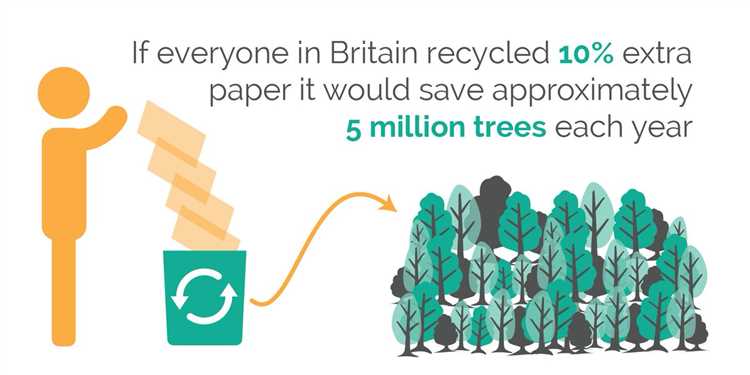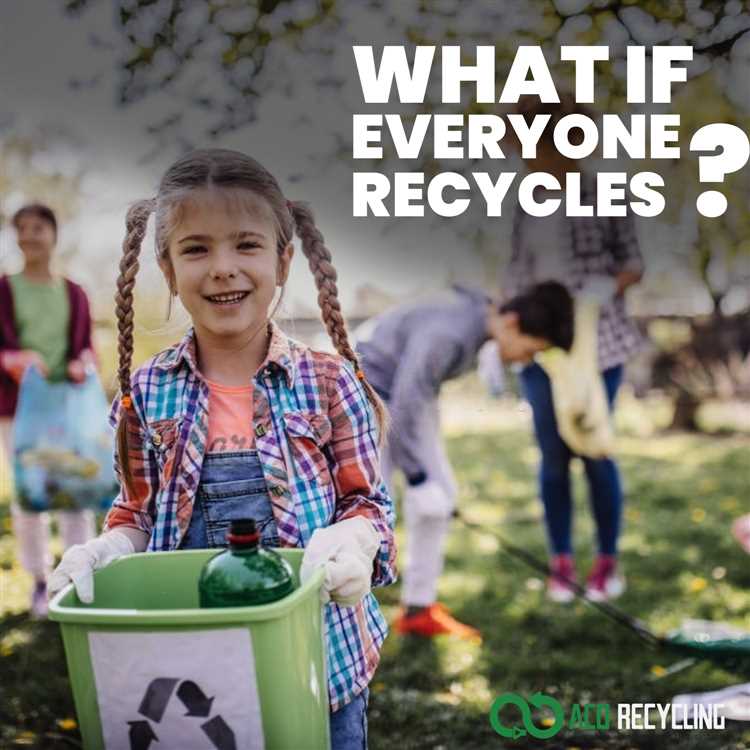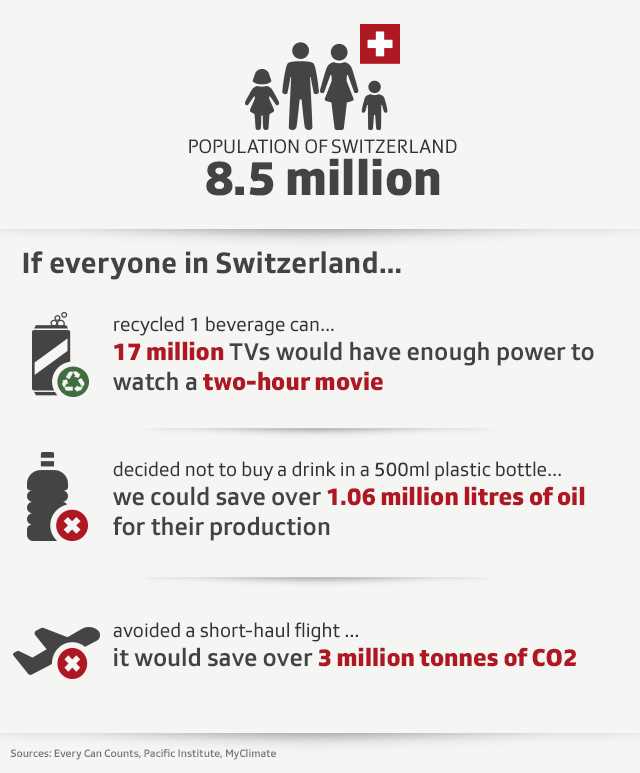
Recycling has become an essential aspect of our daily lives, as more and more people are recognizing the importance of preserving our environment. The act of recycling involves converting waste materials into reusable products, which reduces the need for extracting and producing new materials. While many individuals and communities have embraced recycling, the question remains: What happens if everyone recycles?
If everyone recycles, the impact on our planet would be significant and far-reaching. Firstly, recycling helps to conserve natural resources such as timber, water, and minerals. By reusing materials like paper, plastic, and metal, we can reduce the extraction and depletion of these valuable resources. This preservation of resources is crucial for maintaining a sustainable and balanced ecosystem.
Furthermore, widespread recycling would also help in reducing pollution and greenhouse gas emissions. When waste materials are not properly disposed of and end up in landfills, they decompose and release harmful gases like methane – a potent greenhouse gas. However, by recycling, we can limit the amount of waste that goes to landfills, minimizing the release of greenhouse gases and preventing soil and water contamination.
In addition to environmental benefits, recycling also has economic advantages. If everyone recycles, it would create a demand for recycled materials, promoting the growth of recycling industries. This would lead to job creation, as more people would be employed in the collection, processing, and manufacturing of recycled products. Moreover, recycling reduces the cost of production for companies, as they can utilize recycled materials instead of relying on costly raw materials.
In conclusion, if everyone recycles, the impact would be profound. Recycling not only helps conserve natural resources and reduce pollution, but it also has economic benefits. By embracing recycling as a collective effort, we can contribute to a more sustainable future for our planet and future generations.
- The Importance of Recycling for the Environment
- The Need for Increased Recycling
- Conclusion
- Better Waste Management and Reduction
- Conservation of Natural Resources
- Preserving Energy
- Protecting Biodiversity
- Reduction of Greenhouse Gas Emissions
- The Role of Recycling in Mitigating Climate Change
- The Global Impact of Recycling on Greenhouse Gas Emissions
- Preservation of Ecosystems and Biodiversity
- Reduced Resource Extraction
- Conservation of Energy
- Energy Conservation and the Fight against Climate Change
- Positive Economic Impact and Job Creation
- FAQ:
- What is the impact of recycling?
- How does recycling benefit the economy?
- Is recycling really effective?
- What happens if everyone recycles?
The Importance of Recycling for the Environment
Recycling plays a vital role in protecting and preserving the environment. As global population and consumption rates continue to rise, recycling has become an essential practice to reduce the negative impact on our planet. By recycling, we can help conserve natural resources, save energy, and prevent the accumulation of harmful waste.
One of the primary benefits of recycling is its ability to conserve natural resources. When we recycle materials like paper, plastic, and glass, we reduce the need for extracting and processing raw materials from the earth. This means fewer trees are cut down, less oil is drilled, and less metal is mined. By reusing these materials, we can decrease the demand for new resources and protect the habitats of various wildlife.
In addition to resource conservation, recycling also helps to save energy. The production of new products from recycled materials generally requires less energy compared to manufacturing from scratch. For example, recycling aluminum cans uses only around 5% of the energy needed to create new cans from raw materials. By reducing energy consumption, we can decrease greenhouse gas emissions and mitigate climate change.
Moreover, recycling plays a critical role in waste management. By diverting materials from landfills, we can reduce the amount of waste that decomposes and produces harmful greenhouse gases like methane. These gases contribute to air pollution and global warming. Recycling also helps to prevent the pollution of our oceans, forests, and other natural habitats. By properly disposing of hazardous materials and recycling them, we can ensure a cleaner and healthier environment for future generations.
The Need for Increased Recycling

Although recycling has many benefits, it is important to note that the current recycling rates are not sufficient. Many individuals and communities still do not prioritize recycling, leading to excessive waste and pollution. To address this issue, it is crucial to raise awareness about the importance of recycling and implement effective recycling programs. Governments, businesses, and individuals must work together to promote and encourage recycling practices.
Conclusion
In conclusion, recycling is essential for the environment. It helps conserve natural resources, save energy, and prevent harmful waste accumulation. By increasing recycling rates and making it a priority, we can contribute to a cleaner and healthier planet for future generations to come.
Better Waste Management and Reduction
Implementing recycling on a large scale would lead to better waste management and reduction. Currently, most waste ends up in landfills, causing pollution and potential harm to the environment. With increased recycling efforts, a significant amount of waste can be diverted from landfills and instead be reused or recycled.
By recycling materials such as paper, plastic, glass, and metal, we can conserve valuable resources. Instead of extracting raw materials from the Earth, we can reuse the ones we already have. This reduces the need for destructive mining practices and helps to protect natural habitats and ecosystems.
Furthermore, recycling can play a crucial role in reducing greenhouse gas emissions. Many discarded materials release harmful gases when left in landfills. By recycling these materials, we can significantly reduce the amount of greenhouse gases released into the atmosphere, helping to mitigate climate change.
Better waste management and reduction also have economic benefits. Recycling creates jobs in sectors such as waste collection, sorting, and processing. Additionally, it reduces the costs associated with waste disposal, as recycling is often more cost-effective than landfilling.
Overall, if everyone recycles, we can achieve better waste management and reduction. This not only benefits the environment but also helps conserve resources, reduce greenhouse gas emissions, and stimulate the economy.
Conservation of Natural Resources
Conservation of natural resources is a crucial aspect of recycling. When everyone recycles, we are able to significantly reduce the amount of waste that goes into landfills, which in turn helps to preserve our precious natural resources.
One of the main benefits of recycling is its positive effect on the conservation of materials. By recycling products such as paper, plastic, glass, and metal, we are able to conserve raw materials and reduce the need for extracting and refining new resources from the earth. This helps to preserve natural habitats and ecosystems that would otherwise be disrupted or destroyed by resource extraction.
Preserving Energy

Recycling also plays a crucial role in the conservation of energy. The production of goods from raw materials requires a significant amount of energy, including electricity, fuel, and water. By recycling materials, we can reduce the amount of energy needed for manufacturing and processing new products.
For example, recycling aluminum cans saves about 95% of the energy required to produce aluminum from bauxite ore. This significant energy saving not only helps to conserve natural resources, but also reduces greenhouse gas emissions and air pollution associated with energy production.
Protecting Biodiversity
Another important aspect of recycling is its impact on biodiversity conservation. By reducing the demand for new resources, recycling helps to protect natural habitats and the biodiversity they support. When less land is cleared for resource extraction, more ecosystems can be preserved, providing a home for a wide range of plant and animal species.
Additionally, recycling reduces the need for harmful mining practices, which can lead to the destruction of habitats and the pollution of water bodies. By minimizing these negative impacts, recycling supports the conservation of biodiversity and helps to maintain a healthy and balanced ecosystem.
In conclusion, the practice of recycling has a significant positive impact on the conservation of natural resources. By reducing waste, conserving materials, preserving energy, and protecting biodiversity, recycling plays a vital role in ensuring a sustainable future for our planet.
Reduction of Greenhouse Gas Emissions
One of the most significant benefits of recycling is the reduction of greenhouse gas emissions. Greenhouse gases, such as carbon dioxide, methane, and nitrous oxide, trap heat in the Earth’s atmosphere, contributing to global warming and climate change.
When we recycle materials, we reduce the need for extracting and processing raw materials, which often involves energy-intensive industrial processes. By using recycled materials instead of virgin resources, we can significantly decrease the amount of energy required and the greenhouse gases emitted during manufacturing.
For example, recycling one ton of aluminum cans saves up to 95% of the energy required to produce new aluminum from ore. This energy savings directly translates into a reduction in greenhouse gas emissions, as the production of new aluminum from raw materials is a highly carbon-intensive process.
In addition to energy savings, recycling also helps to reduce methane emissions. When organic waste, such as food scraps and yard trimmings, ends up in landfills, it decomposes and releases methane, a potent greenhouse gas. By diverting organic waste from landfills and composting it instead, we can harness the beneficial properties of compost while preventing the release of methane into the atmosphere.
The Role of Recycling in Mitigating Climate Change
Recycling plays a crucial role in mitigating climate change by reducing greenhouse gas emissions in several ways:
- Conservation of energy: By using recycled materials, we can conserve energy and reduce the need for fossil fuel-based energy sources.
- Reduced use of raw materials: Recycling reduces the demand for extracting and processing virgin resources, which lowers the associated greenhouse gas emissions.
- Methane emissions reduction: Proper waste management, including recycling and composting, prevents the release of methane, a potent greenhouse gas, from landfills.
- Carbon sequestration: Recycling paper and planting trees can help remove carbon dioxide from the atmosphere, addressing the primary greenhouse gas responsible for climate change.
The Global Impact of Recycling on Greenhouse Gas Emissions
If everyone were to recycle, the cumulative reduction in greenhouse gas emissions would be substantial. The more materials we recycle, the less we rely on fossil fuels and energy-intensive extraction processes, resulting in a significant decrease in carbon dioxide and other greenhouse gases emitted into the atmosphere.
Furthermore, widespread recycling would also reduce the amount of waste sent to landfills, thus limiting methane emissions. This collective effort could contribute to slowing down the rate of global warming and help preserve the Earth’s climate for future generations.
Preservation of Ecosystems and Biodiversity

Recycling plays a crucial role in the preservation of ecosystems and biodiversity. The extraction and production of raw materials for manufacturing new products often lead to habitat destruction and the loss of biodiversity. However, when we recycle, we reduce the demand for new materials, thus minimizing the need for destructive activities such as mining and deforestation.
Reduced Resource Extraction
By recycling, we decrease the extraction of natural resources, including metals, minerals, and fossil fuels. Many of these resources are non-renewable and take millions of years to form. Every ton of recycled material reduces the need to extract new resources from the earth. This reduction in resource extraction helps to preserve ecosystems and prevent the destruction of habitats that support various plant and animal species.
Conservation of Energy
Recycling also plays a significant role in conserving energy. The production of new products from recycled materials requires less energy compared to the extraction, processing, and manufacturing of new materials. By reducing energy consumption, we lower our dependence on fossil fuels, which helps to mitigate the negative impacts of climate change. This, in turn, supports the preservation of ecosystems and the maintenance of biodiversity.
In addition to reducing resource extraction and conserving energy, recycling also helps to mitigate pollution and reduce greenhouse gas emissions. By recycling materials instead of sending them to landfills or incinerators, we prevent harmful chemicals and pollutants from entering the environment. This directly contributes to the conservation of ecosystems and the protection of various plant and animal species.
In conclusion, the act of recycling has a significant positive impact on the preservation of ecosystems and biodiversity. By reducing resource extraction, conserving energy, and mitigating pollution, recycling plays a crucial role in maintaining the delicate balance of our planet’s ecosystems and protecting the diverse range of species that inhabit them.
Energy Conservation and the Fight against Climate Change
Energy conservation plays a crucial role in the fight against climate change. The burning of fossil fuels for energy production is a major contributor to greenhouse gas emissions, which are the primary cause of global warming. By reducing our energy consumption, we can significantly decrease our carbon footprint and help mitigate the effects of climate change.
There are many simple and effective ways to conserve energy in our daily lives. One important step is to improve the energy efficiency of our homes and buildings. This can be achieved through better insulation, energy-efficient appliances, and the use of renewable energy sources such as solar power. By reducing energy waste, we can lower our overall energy consumption and reduce the demand for fossil fuels.
Transportation is another sector where energy conservation is crucial. Switching to more fuel-efficient vehicles, carpooling, using public transportation, and walking or biking whenever possible can significantly reduce greenhouse gas emissions from transportation. Investing in public transportation infrastructure and promoting the use of electric vehicles can also make a significant impact in the fight against climate change.
Energy conservation not only helps combat climate change but also offers many other benefits. It can lead to cost savings for individuals, businesses, and governments, as using less energy means spending less money on energy bills. It also reduces the dependency on fossil fuels, which are finite resources and have negative environmental impacts throughout their extraction and use.
Lastly, promoting energy conservation can help create a culture of sustainability and encourage individuals and communities to take action against climate change. By making energy-efficient choices and adopting sustainable practices, we can inspire others to do the same and work collectively towards a more sustainable future.
Positive Economic Impact and Job Creation
Recycling has a positive economic impact on society by creating jobs and contributing to the growth of local economies. When people recycle, it creates a demand for recycled materials, which in turn stimulates the recycling industry. This industry includes the collection, sorting, processing, and manufacturing of recyclable materials.
By recycling, we are reducing the need for extracting raw materials from the earth and the energy-intensive process of manufacturing new products. This conserves natural resources and reduces carbon emissions, leading to a more sustainable and environmentally friendly economy.
The recycling industry also creates jobs in various sectors. There are employment opportunities in waste management, recycling centers, manufacturing facilities that use recycled materials, and research and development of new recycling technologies. Recycling not only provides jobs for individuals but also supports local businesses and economies.
Additionally, the economic benefits of recycling extend beyond job creation. By reducing waste, recycling reduces disposal costs for individuals, businesses, and governments. Instead of paying for waste disposal, these resources can be redirected towards other essential services or investments in the community.
In conclusion, recycling has a significant positive economic impact on society. It creates jobs, stimulates local economies, conserves natural resources, reduces carbon emissions, and reduces disposal costs. By encouraging everyone to recycle, we can further enhance these economic benefits and contribute to the overall well-being of our communities.
FAQ:
What is the impact of recycling?
Recycling has a significant impact on the environment as it reduces the need for extracting and processing raw materials. It also reduces energy consumption and greenhouse gas emissions. Recycling helps conserve natural resources, save landfill space, and protect ecosystems.
How does recycling benefit the economy?
Recycling helps create jobs in the recycling industry, from collection to processing and manufacturing. It also reduces the cost of producing goods as recycled materials are often less expensive than raw materials. Additionally, recycling reduces the amount of waste going to landfills, which saves money on waste management and disposal.
Is recycling really effective?
Yes, recycling is an effective way to reduce pollution and conserve resources. By recycling, we can reduce the demand for raw materials, which helps preserve natural resources. It also reduces energy consumption and greenhouse gas emissions, which are major contributors to climate change.
What happens if everyone recycles?
If everyone recycles, it would have a significant positive impact on the environment and our society. It would help conserve natural resources, reduce pollution, and lower greenhouse gas emissions. Recycling would also create more jobs in the recycling industry and stimulate economic growth. Landfills would have less waste, leading to less contamination of soil and water. Overall, if everyone recycles, we can create a more sustainable and cleaner future.